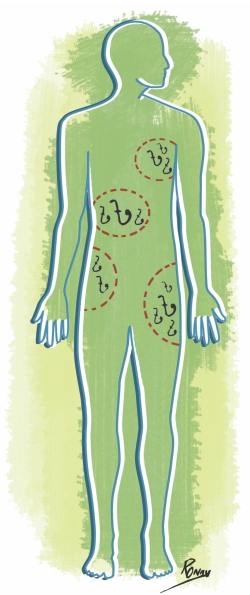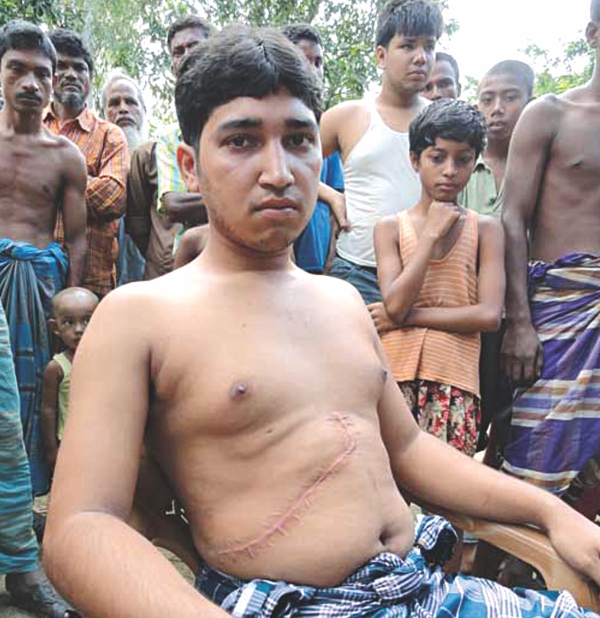
Inside
|
Inhumanity of Human Organ Trade
DR. MONIR MONIRUZZAMAN explains the devastating economic, social, and health impacts of trading organs for money.
 In a neo-liberal economy, people tend to view more and more things as market commodities. Even human body parts are seen as a bag of spare parts with price tags. People often ask: Why is the organ trade illegal, since it saves the lives of dying patients and supports the poor in getting out of poverty? In this article, I explain how the organ trade is a seriously exploitative, unethical, and burdensome practice.
In a neo-liberal economy, people tend to view more and more things as market commodities. Even human body parts are seen as a bag of spare parts with price tags. People often ask: Why is the organ trade illegal, since it saves the lives of dying patients and supports the poor in getting out of poverty? In this article, I explain how the organ trade is a seriously exploitative, unethical, and burdensome practice.
The advancement of transplant technology has created a thriving market of human organs worldwide. In China, organs are harvested from executed prisoners, while in South Asia, “fresh” organs are removed from the bodies of the poor populations. While poor people are at a high risk of organ failure (due to their dire living conditions), they usually die without receiving an organ transplant, let alone dialysis. At the same time, they serve as mere suppliers of body parts to prolong the lives of the affluent few.
The organ trade is gravely exploitative, as Indian Dr. J. V. Thachil argues: “It is criminal to exploit the poor in order to keep less than one percent of the population alive”. In this trade, few of us would choose to sell our organs, yet the desperately poor are left with few prospects other than to sell their body parts. Those who benefit from this trade are recipients, brokers, doctors, and businessmen, while the poor are tricked and forced to sell their organs, and as a result endure severe suffering.
Selling a kidney has devastating economic, social, and health impacts on kidney sellers. My research on 33 Bangladeshi kidney sellers reveals that 94% of them could not improve their economic circumstances by selling a kidney. Most sellers sold their kidneys to pay off their debt, but were back in debt within few years. In fact, 80% of these sellers did not receive the entire payment that they were promised. When the money was spent, they engaged in organ brokering to support their families.
In addition, Bangladeshi sellers became socially isolated, were stigmatized, and experienced marital conflict due to selling their kidneys. Most of them not only regretted selling an organ, but also decided not to recommend that anyone sell a kidney.
Further, these sellers experienced frequent illness, pain, weakness, and weight loss, as well as anxiety, distress, and depression after selling their kidneys. While the medical community has put the risk of death for kidney donors due to surgery at one in 3,000 (according to Bruzzone and Berloco, 2007), the death rate of Bangladeshi sellers could be higher, due to their terrible living condition and the fact that none of them received the promised post-operative care.
What is more, the organ trade violates humanist, cultural, and religious principles, such as holism, integrity, and sacredness of the body, along with human dignity. The Bangladeshi sellers I interviewed believed that Allah was the owner of their body parts, and therefore they felt that selling His gift is intrinsically wrong. They stated that they could not preserve the wholeness of their body, and therefore were living in an undignified state, which they described as “sub-human.”
Furthermore, organ trade is a slippery slope practice. We have already seen not only human kidneys, but also liver lobes, increasingly become market commodities in Bangladesh. How far can we go with the organ trade? Can we chop a leg and a hand from the poor, assuming that one of these body parts is sufficient for them?
 PHOTO: STAR FILE
PHOTO: STAR FILE
An organ trade would have much wider negative impacts, as well. It would likely impede the establishment of a cadaveric organ donation program. Also, it would create a market where wealthy patients would buy organs from the poor, whose price is lower. An organ trade would encourage moneylenders to force the poor, or husbands to force their wives, to sell organs for economic profit.
For these reasons, the World Health Organization's 2010 resolution and Istanbul's 2008 declaration against organ trafficking clearly state that the human body and its parts cannot be the subject of commercial transactions. These statements also reiterate that advertisements for organs, with a view to offering payment and brokering, should be prohibited. If we believe in the 1948 Universal Declaration of Human Rights, which underscores that health is a human right, the organ trade should be denounced.
The organ trade should be ceased. The solution to the organ shortage lies in cadaveric organ donation, altruistic family donation, xenotransplantation, bioengineering, and even dialysis. We must ensure that the organ transplant enterprise provides justice to the poor.
The author is an Assistant Professor, Department of Anthropology and Center for Ethics and Humanities in the Life Sciences, Michigan State University, USA. Email: monir@msu.edu